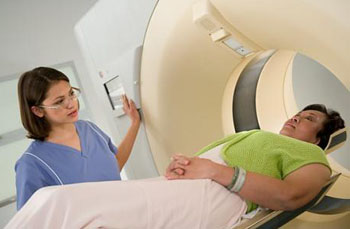Cancer Risk Due to CT is Not Fully Appreciated
By MedImaging International staff writers
Posted on 06 Jul 2016
Researchers at the University of Saskatchewan (Saskatoon, Canada) conducted a survey among 328 medical professionals in Saskatchewan province to assess healthcare providers' knowledge regarding radiation dosing from CT scans. To do so, they queried them regarding the average radiation dose from an abdominal-pelvic CT, which is 10 millisieverts (mSv), compared to 0.02-0.2 mSv from one chest x-ray, which indicates that the radiation dose from an abdominal-pelvic CT scan is between 100-250 times that of a chest radiograph.Posted on 06 Jul 2016
The results showed that 73% of physicians, 97% of radiologists, and 76% of technologists correctly identified that there is an increased cancer risk from one abdominal-pelvic CT. However, just 18% of physicians, 28% of radiologists, and 22% of technologists were able to correctly identify the dose in relation to chest x-rays. And although 48% of physicians, 78% of radiologists, and 63% of technologists either accurately estimated or overestimated this dose, many respondents underestimated the dose level.

Image: A new study suggests that many doctors, radiologists, and imaging technologists underestimate the actual radiation dose from CT scans (Photo courtesy of ITN).
The survey also showed that 93% of respondents were interested in radiation dose feedback when considering ordering a CT scan. Another interesting finding was that there is some confusion regarding radiation exposure from magnetic resonance imaging (MRI) and ultrasound. While MRIs and ultrasounds do not employ ionizing radiation, 20% of physicians, 6% of radiologists, and 7% of technologists attribute radiation exposure to MRI, and 11% of physicians and 7% of technologists believed an ultrasound used radiation. The study was published on June 22, 2016, in the Journal of Medical Imaging and Radiation Sciences.
“Healthcare providers, including physicians, radiologists, and medical imaging technologists are often not aware of radiation doses for common CT scans,” said lead author David Leswick, MD. “It is important for healthcare professionals to be aware of radiation dose levels and risks from imaging tests for several reasons, including the ability to weigh the risks and benefits of tests, counsel patients on relevant risks, optimize protocols to minimize radiation dose, and select appropriate protocols to minimize radiation dose.”
The researcher suggested that automated dose calculation software and radiology information systems could be integrated into electronic ordering, which would give doctors immediate access to radiation dosage information when considering ordering a scan.
Related Links:
University of Saskatchewan













